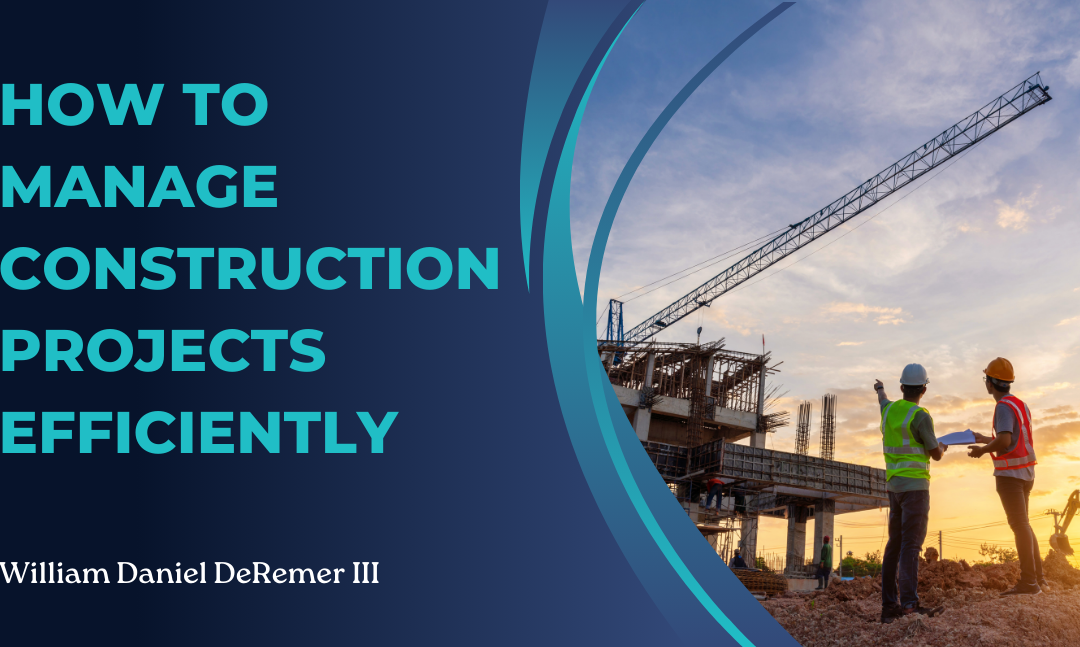Managing a construction project is a complex process that requires careful planning, coordination, and execution. From setting a budget and hiring contractors to ensuring on-time delivery and maintaining safety standards, a successful project manager wears many hats. Efficient project management not only ensures quality outcomes but also minimizes delays, reduces costs, and improves client satisfaction.
The foundation of effective construction management is thorough planning. Before a single shovel hits the ground, a detailed project plan must be in place. This includes defining the scope of work, identifying key milestones, and outlining timelines. A well-prepared plan serves as a roadmap for the entire project and helps in allocating resources effectively. It’s important to anticipate potential challenges and build in flexibility for unexpected changes.
Clear communication is essential in managing any construction project. With multiple stakeholders involved—such as architects, contractors, engineers, suppliers, and clients—keeping everyone informed is crucial. Regular meetings, daily progress reports, and updated schedules help maintain alignment and address issues before they escalate. Using digital tools like project management software can streamline communication and document sharing, ensuring that everyone is on the same page.
Time management is another key element. Delays are common in construction, but they can often be avoided with realistic scheduling and proactive monitoring. Breaking the project into phases and setting achievable deadlines helps maintain momentum. It’s also important to monitor progress against the schedule and make adjustments as needed. Gantt charts, timelines, and milestone tracking tools are helpful in visualizing and managing project timelines.
Budget control is just as critical as time management. Construction projects often run over budget due to poor forecasting, design changes, or unforeseen conditions. Accurate cost estimation at the beginning is crucial, but ongoing cost tracking throughout the project is equally important. Regular financial reviews can help identify discrepancies early and allow for corrective action. Allocating contingency funds and having a solid change order process can prevent financial surprises.
Quality assurance is another pillar of efficient project management. Setting quality standards and conducting regular inspections ensure that the work meets both design and regulatory requirements. Employing experienced professionals, using high-quality materials, and staying up-to-date with industry standards all contribute to better outcomes. It’s essential to correct any issues early to avoid costly rework later.
Safety must never be overlooked. A well-managed construction project prioritizes the health and safety of workers and visitors. Developing a comprehensive safety plan, conducting regular training sessions, and enforcing site rules reduce the risk of accidents and injuries. Site managers should regularly inspect equipment and enforce the use of personal protective equipment (PPE). Promoting a safety-first culture leads to fewer disruptions and enhances worker morale.
Efficient construction management also relies on strong leadership. A good project manager is decisive, organized, and able to motivate the team. They must be skilled at resolving conflicts, managing stress, and adapting to changes. Building strong relationships with clients and contractors based on trust and transparency goes a long way in ensuring smooth execution.
Technology can be a valuable ally in managing construction projects efficiently. Project management platforms, cloud storage, real-time dashboards, and mobile apps enable better collaboration and decision-making. These tools help streamline workflows, track progress, and store important documents in one central location. Embracing digital solutions can reduce administrative tasks and improve overall productivity.
Lastly, continuous improvement should be a goal. After the project is completed, conducting a post-mortem analysis can reveal what went well and what could have been done better. This feedback is invaluable for improving future project management practices and delivering better results over time.
Efficient construction project management is both an art and a science. With careful planning, clear communication, and a focus on safety, quality, and cost, project managers can deliver successful outcomes that meet or exceed client expectations. In a competitive industry, mastering these skills is the key to long-term success.

